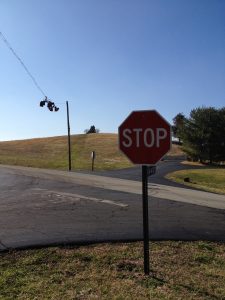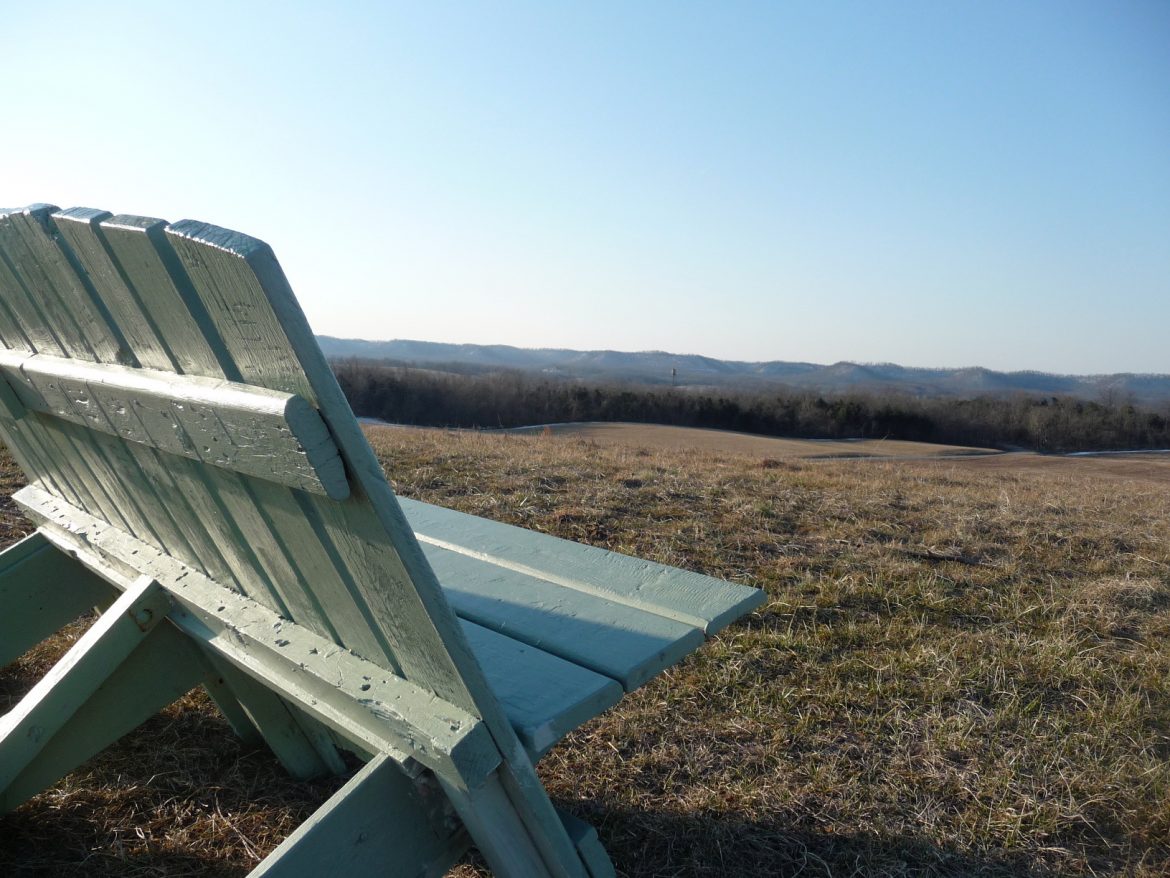By Lilly Lewin
This is a much longer post than I usually write. I talked last week about my practice of silence at the Abbey of Gethsemani. Here’s an article I wrote on Silence for Immerse Magazine back in 2012. It gives a good picture of how I got started in this practice and gives us some steps we can all take to add silence into or real lives. The hardest part is making the choice to begin.
I am sitting in my living room and it is totally quiet…well that’s not quite true. I can hear the ceiling fan whirring above my head, my dog is snoring at my feet, and every so often I hear a car on the road traveling home from work. In all honesty, silence is never really quiet, and it’s elusive. I could easily flip on NPR or the TV, or check up on the Carolina basketball game. Instead I am sitting alone, quiet, considering just why someone would want to practice silence on a regular basis.
Why do we need silence and quiet anyway?
In our culture, slowing down and being still is about as easy to do as winning the lottery. We definitely don’t get points in our culture for being quiet and taking time out. Instead we find ourselves surrounded by sounds and the stress of having three screens going at once. Father Matthew Kelty , a monk at the Abbey of Gethsemani, says that “too much input drowns our inner capacity to dialogue with God.” We need a clean break from the flood of data, an empty hard drive for a new beginning. All of us need to reboot our inner life with quiet, with the practice of silence.
When I started practicing silence I was in the middle of ministry in a small church. I was a type A workaholic-extrovert who was in charge of all Christian education, “birth to death,” and youth group too. Sunday’s were eighteen-hour days. At home, I had two elementary age sons and a husband with all their activities, and the regular stuff of laundry and dishes and distraction. Busy was my middle name. And REST was a four-letter word. In the midst of helping everyone else connect with God, my own spiritual life was bone dry. I was desperate.
What saved my life was a five-day silent retreat at the Abbey of Gethsemani near Bardstown, Kentucky, the home of Thomas Merton and the monks who are famous for their hospitality, work and prayer. The Trappist monks have been praying at this spot seven times a day since 1848. They make fudge and fruitcake, but as Fr. Kelty said, “the best dish we offer is the quiet.”
I am not a natural at being quiet. I grew up extremely Protestant and in the buckle of the Bible-belt where spiritual practices like silence and solitude were not even a part of the discussion of following Jesus. Nor were Trappist Abbeys. So the value of silence wasn’t even on my radar till I spent that first retreat at the Abbey. When I told a friend I was going for five days, she laughed and suggested I try one day first. But I knew I needed a full five days. Somehow I knew it would take me til Wednesday for the noise in my head to get quiet. Now I make an annual pilgrimage to Kentucky and my week of silence is a vital part of my walk with God. I also now wish the 5 days could be 10, and I need a smaller retreat every six months. I’m also putting mini silent retreats into my “real life”. That involves making time to get off facebook, keeping driving times silent, and deciding not to watch tv on certain days.
Baby Steps into Silence
Thomas Merton said, “ Silence helps draw together the scattered and dissipated energies of a fragmented existence. It helps us to concentrate on a purpose that really corresponds not only to the deeper needs of our being but also to God’s intentions for us.”
Silence takes practice. Taking time to practice silence is totally different from a daily quiet time, and it is different from studying the Bible on your own or with your small group. Practicing silence is time for Jesus to talk to you. It involves making space, holding space, and letting God fill it. Silence is like a blank canvas, or a blank page that we are giving to God. We are allowing him to fill the page, inviting Jesus to paint what he wants on the canvas. And it’s not always what I expect or have planned to happen. In my experience with silence, Jesus has done both great healing, allowing me to forgive myself and others, and provided great refreshment that enabled me to go back home with a renewed focus.
What will it take for you to be silent for a day? For a weekend? For a week? And where can you practice silence? Do you already know the place? Has it been waiting for you all this time?
I’ve learned that I don’t have to be a super hero or have the monastic call to practice silence, I just have to be willing to give the time and space to God. I have to give myself permission to take time off, to give myself the space to be silent and alone with God. If you’re an extrovert you’re not the most likely candidate to spend time alone in solitude and quiet. Many of us have a hard time being quiet for 5 minutes much less five hours or five days. Our silent retreats don’t have to start by reserving an entire week, you can also baby step into silence. Start small, and try spending ten minutes a day in intentional silence. Then, after a few days, spend fifteen minutes. And then, a few days later, spend a half an hour in silence. Work yourself up to spending an entire day being silent. I find the more I practice silence, the more I need it. I need the space in my heart intentional quiet brings. So start small or you can start BIG. Just START!
Permission for a Whole Day
You may be like me, so desperate for silence and so dry that you need to dive into a major silent retreat with both feet. Maybe it’s the only way you’ll actually do it! There are monasteries and retreat centers around the country that accommodate silence. These can be directed retreats (have certain things you do each day) or non-directed where you set your own agenda. I find on a five-day retreat that the first thing I do is sleep. I don’t even realize how tired I am till I have no responsibilities but to be quiet. And as they say at the Abbey, sleep is Holy. Some people sleep for two days! Then I read, take long walks, and pray with the monks a couple of times a day. I have yet to pray the hours all 7 times because that is not my goal. My goal is to be silent, to be still and to hear from Jesus.
So give yourself permission! You can do this!
Everyone has a unique practice of silence, and you know intuitively what you need in your life right now and how you best engage God. Be willing to obey what the Spirit is telling you, and have the courage to do that. Also be willing to try something new, like taking a long walk looking for how God speaks to you through nature, or writing a poem, or creating something in art. Things you might not have considered to be prayer practices before.
A Silence Toolbox
Perhaps you don’t need a major silent retreat. Maybe you just need to take a day off and get out of town to some place beautiful/scenic and just be alone with Jesus.
If you are going for a half-day or a day retreat, you don’t need to take anything but a snack, Bible and your journal. An open heart and open ears. You don’t need a phone. or your computer. You aren’t allowed to take work with you. Give your tasks away to others so the retreat isn’t forced into being a work session, and so you don’t have a massive to-do list when you return. That’s not rest, is it?
Give yourself permission to leave your Bible at home (especially if you’re tempted to use the time to start doing research for your next teaching series). Only take with you the things that help you hear from God. For me, that’s art supplies, journal, and my camera. On a week retreat at the Abbey, I tend to pack my car with all sorts of things, from clay to candles and post-it notes. I never know what God will use to speak to me. This much gear would drive other people nuts. My husband just needs a pen and his journal. Anything else is clutter to him.
Take paper and a pen, because you’ll need to write. As you are silent, stuff will come up that you will need to get out, stuff that usually has nothing to do with God. I call this “brain draining,” getting rid of your “to do lists” and all the other distractions, and busyness in your brain that keeps you from hearing from God. Even on a weekly silent retreat I do a brain drain almost everyday and sometimes multiple times a day. It let’s me release all my jobs, worries and responsibilities onto a paper, and get them out. Then I’m free to listen, and hear.
Starting Silence
Where do we begin our time in silence? Before you start consider your fears of silence and talk to Jesus about them.
Then let go of your expectations. There is no wrong way to be silent. Silence is emptying ourselves of our own agenda and receiving God’s agenda for us. Expect it to be awkward for a while; you’re walking on new ground. Consider how God has spoken to you in the past and how you best engage God. Does that involve a place or space outside? Does that mean going away from home, or can you be still with a cup of coffee on your deck?
Gather your supplies and find a comfortable spot to be. Focus on your breathing. Take time to just be still. This is not a competition or a performance. This is not about more information, it involves going beyond your brain to your heart, to the center of who you are.
This is your time to be with God.
Listen to the sounds around you. Listen to your heart beat. Rest, relax, be present in the space and in the moment. Allow your mind to keep coming back to the fact that Jesus is with you and wants you to be with Him.
If sitting feels forced, start with a walk instead. Wandering is good, but it’s also good to be intentional. As I walk I ask Jesus to speak to me or answer a question like “what am I missing?” what do I need? I also use the Jesus prayer to help me focus” Lord Jesus, son of God, have mercy on me a sinner.” Keep your journal handy, maybe a pocket one, so you can record questions, things you notice, things you hear from Jesus, and for your brain drain list of distractions.
If I could give you one gift for your spiritual life that will enable you to maintain your journey with God , it would be the gift of silence.
Mother Teresa said, “God is the friend of silence. See how nature—trees, flowers, grass—grows in silence; see the stars, the moon and the sun, how they move in silence…We need silence to be able to touch souls.”
In silence we refuel, we reconnect with God and with ourselves. It’s the gift of silence that gives us the bandwidth to continue our journey and our call.
 Books that have helped me:
Books that have helped me:
Lost in Wonder: Rediscovering the Spiritual Art of Attentiveness
A Seven Day Journey with Thomas Merton
Both by Esther de Waal
NOTE: As an Amazon Associate Godspace receives a small amount for purchases you make through the links above. This is part of how we finance the blog. Thank you for your support.

